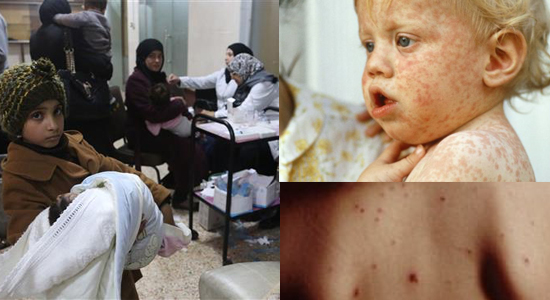Europe has seen an increasing surge in measles cases in 2017, according to the World Health Organisation, compared to 2016, the number of infections quadrupled to more than 21,000 cases across Europe in 2017. Thirty-five people died. The outbreaks hit 15 European countries — with especially large ones hammering Romania with 5,562 infections, Italy with 5,006, and Ukraine with 4,767.
In a statement, the WHO’s regional director for Europe, Zsuzsanna Jakab, called it “a tragedy we simply cannot accept.” Measles is a contagious and potentially deadly virus that’s preventable, thanks to the safe and effective MMR vaccine. But vaccination rates are down in parts of Europe, the WHO says.
That leaves people who opted out of the vaccine, or who couldn’t get it because they’re too young or sick, vulnerable to infection. The measles virus, which is known for causing a rash, can also cause pneumonia, brain swelling, and death.
In Romania, the drop in vaccinations is partly due to a country-wide vaccine shortage — although the country’s health ministry says they now have enough.
But experts also attribute the recent resurgence of measles in Italy, for example, to the growing strength of anti-vaccine movements, according to CNN. Anti-vaxxers buy into the thoroughly debunked theory that vaccines cause autism.
Recently, European countries like France and Italy have made certain vaccines mandatory, according to Vox.
In Italy, parents can face a fine of about $600 if they can’t prove their kids are vaccinated before starting school. In Germany, fines are up to $3,000 for parents who refuse medical advice about vaccinations, Reuters reported in May. In the US, where measles has also made a comeback, California banned parents from claiming their personal beliefs prevented them from vaccinating their kids.
The WHO plans to boost vaccination rates with public awareness campaigns and improve the vaccine supply chain. “This short-term setback cannot deter us from our commitment to be the generation that frees our children from these diseases once and for all,” Jakab says.



















.png?auto=webp&format=pjpg&width=3840&quality=60)
